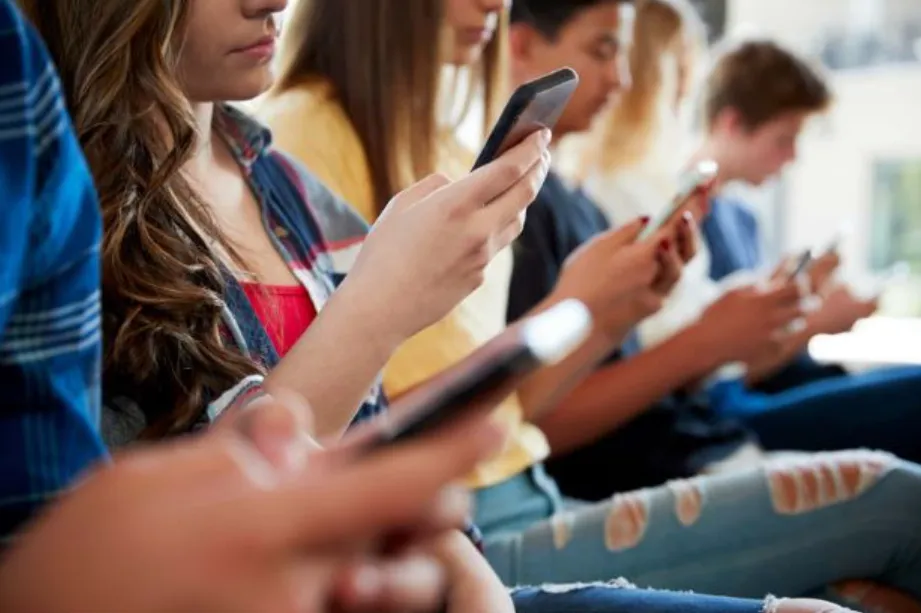The Impact of Social Media on Mental Health: Benefits and Challenges
Introduction
Social media has become an integral part of modern life, shaping the way individuals interact, communicate, and consume information. Platforms such as Facebook, Instagram, Twitter, TikTok, and Snapchat allow users to stay connected with friends and family, share life experiences, and access news in real time. While social media offers numerous benefits, it also presents significant challenges, particularly in relation to mental health. This essay explores the advantages and drawbacks of social media on mental well-being, highlighting its impact on self-esteem, anxiety, depression, and social relationships.
Benefits of Social Media on Mental Health
Despite concerns over its negative effects, social media provides several mental health benefits. These include enhanced social connectivity, emotional support, access to mental health resources, and opportunities for self-expression.
1. Increased Social Connectivity
Social media bridges geographical gaps, enabling individuals to maintain relationships regardless of distance. It facilitates communication with loved ones, fosters new friendships, and helps people stay updated on important life events. This connectivity is particularly valuable for individuals who may experience social isolation due to disabilities, mental health conditions, or geographical barriers.
2. Emotional Support and Community Building
One of the most significant benefits of social media is the ability to find emotional support. Online communities and support groups provide a safe space where individuals struggling with mental health challenges can share their experiences and receive encouragement from others who understand their struggles. Mental health advocacy pages, influencers, and nonprofit organizations also use social media to raise awareness and provide valuable information.
3. Access to Mental Health Resources
Social media has made mental health resources more accessible. Platforms host content from psychologists, therapists, and mental health advocates, offering tips on coping mechanisms, self-care strategies, and professional help options. Many organizations also use social media to spread awareness about mental health issues, reducing stigma and encouraging individuals to seek help when needed.
4. Opportunities for Self-Expression
For many, social media serves as a creative outlet where they can express their thoughts, emotions, and talents. Whether through writing, photography, music, or art, social media allows users to share their passions and receive validation and appreciation from their online communities. This expression can have a positive effect on self-esteem and mental well-being.
Challenges of Social Media on Mental Health
While social media has undeniable benefits, it also presents significant risks to mental health. The constant exposure to curated content, cyberbullying, digital addiction, and reduced face-to-face interactions can lead to anxiety, depression, and decreased self-esteem.
1. Comparison and Low Self-Esteem
Social media platforms often showcase idealized versions of people’s lives, leading users to compare themselves to unrealistic standards. Many individuals, especially teenagers and young adults, experience feelings of inadequacy and low self-worth when comparing their lives to those portrayed online. This phenomenon, known as “social comparison theory,” has been linked to increased body dissatisfaction, negative self-perception, and diminished self-esteem.
2. Anxiety and Depression
Several studies have found a correlation between excessive social media use and increased levels of anxiety and depression. The constant exposure to negative news, cyberbullying, and the pressure to maintain an online persona can contribute to mental distress. Additionally, doomscrolling—compulsively consuming negative content—can heighten feelings of fear and hopelessness.
3. Cyberbullying and Online Harassment
One of the most concerning aspects of social media is cyberbullying. Unlike traditional bullying, which is limited to specific locations such as schools or workplaces, cyberbullying follows victims into their personal spaces through their devices. This form of harassment can lead to severe emotional distress, anxiety, depression, and even suicidal thoughts. Social media platforms have taken steps to combat cyberbullying through reporting mechanisms and AI-driven moderation, but it remains a significant issue.
4. Addiction and Reduced Productivity
Social media is designed to be engaging, with algorithms that encourage users to spend more time on their platforms. This can lead to compulsive usage, reducing productivity and interfering with daily responsibilities. Excessive social media use has also been linked to poor sleep patterns, as many individuals scroll through their feeds late at night, leading to sleep deprivation and increased stress levels.
5. Decline in Face-to-Face Interactions
While social media connects individuals virtually, it can sometimes lead to reduced real-world interactions. Over-reliance on digital communication can weaken interpersonal skills and reduce the depth of relationships. Face-to-face conversations allow for emotional cues such as facial expressions and tone of voice, which are often lost in text-based communication, leading to misunderstandings and decreased emotional intelligence.
Finding a Balance: Healthy Social Media Usage
Given both the benefits and risks associated with social media, it is essential to use it in a balanced and mindful way. Implementing healthy habits can help individuals harness the positive aspects of social media while mitigating its negative effects.
1. Setting Time Limits
One effective strategy is to set time limits on social media use. Many smartphones and apps offer features that track screen time and allow users to set daily limits. Reducing time spent on social media can help improve productivity, sleep, and overall mental well-being.
2. Curating a Positive Online Environment
Following pages that promote positivity, self-improvement, and mental health awareness can make social media a more uplifting experience. Unfollowing or muting accounts that trigger negative emotions or unrealistic comparisons can also contribute to a healthier online space.
3. Prioritizing Real-Life Interactions
While social media is a valuable tool for staying connected, it should not replace face-to-face interactions. Making time for in-person conversations, outdoor activities, and hobbies can help maintain a balanced social life and improve overall mental health.
4. Practicing Digital Detoxes
Taking periodic breaks from social media, also known as digital detoxing, can help individuals reset their minds and focus on real-life experiences. Whether for a few hours, a day, or even a week, stepping away from social media can reduce stress and improve mental clarity.
5. Seeking Professional Help When Needed
If social media usage is significantly affecting mental health, seeking professional help is advisable. Therapists and counselors can provide strategies to cope with anxiety, depression, and the negative effects of social media.
For those seeking a more intensive and luxurious approach to mental wellness and recovery, options like Carrara luxury rehab Malibu offer comprehensive programs in a serene and supportive environment.
Conclusion
Social media is a double-edged sword, offering both benefits and challenges for mental health. While it provides social connectivity, emotional support, and access to valuable resources, it also poses risks such as comparison-induced low self-esteem, anxiety, depression, and addiction. By using social media mindfully, setting healthy boundaries, and prioritizing real-world interactions, individuals can enjoy the benefits of social media while protecting their mental well-being. As technology continues to evolve, it is crucial to foster a balanced relationship with social media to ensure a positive impact on mental health.




